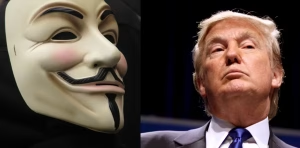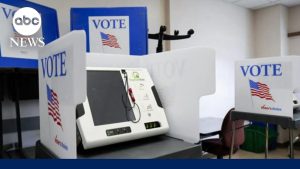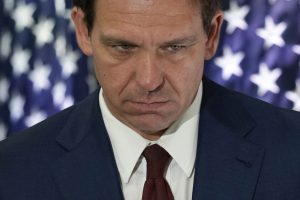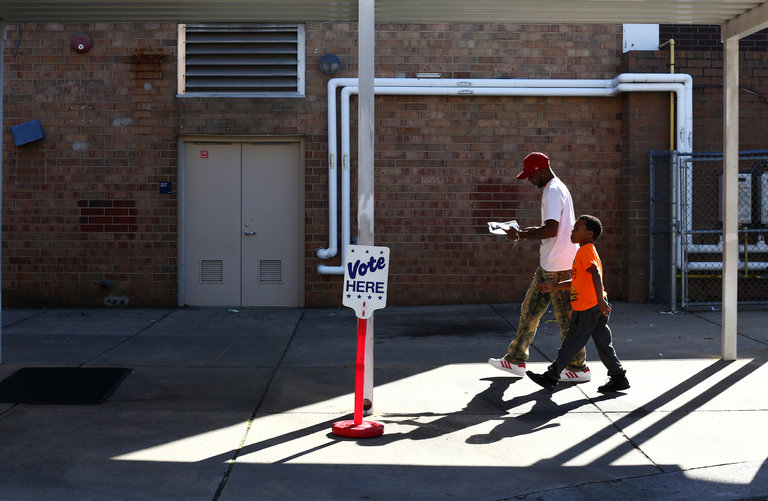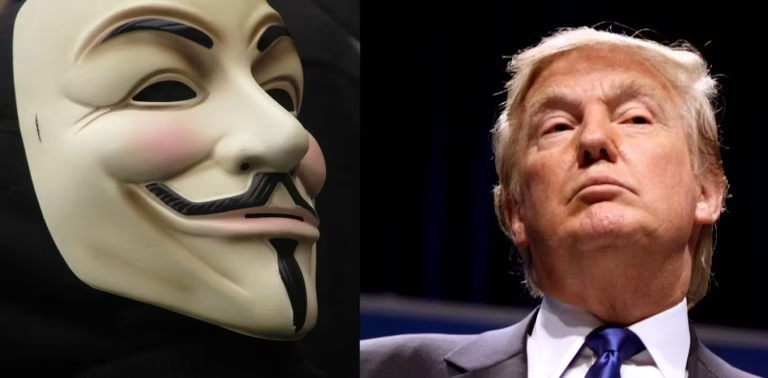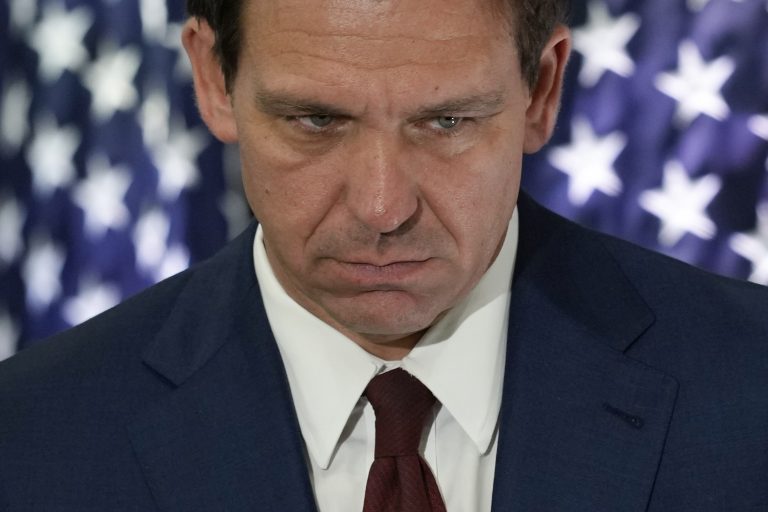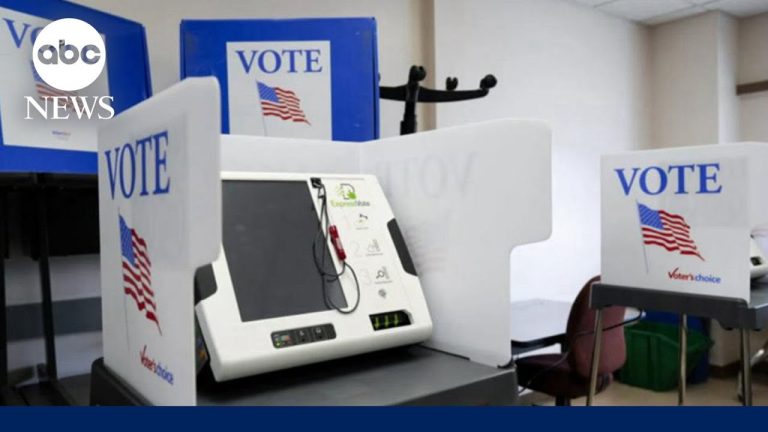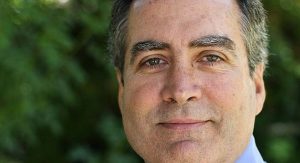When Donald J. Trump suggested this week that recent court rulings against voter identification laws could contribute to a “rigged” election this fall, his comments ran counter to the findings of many judges and researchers, who say such statutes aim at a form of fraud that is rare and typically isolated.
Mr. Trump’s remarks, which he made during an interview with The Washington Post, align closely with arguments long advanced by supporters of voter identification laws, including Republican governors and state legislators.
“We may have people vote 10 times,” Mr. Trump told The Post. “It’s inconceivable that you don’t have to show identification in order to vote or that the identification doesn’t have to be somewhat foolproof.”
Mr. Trump later said, “If you don’t have voter ID, you can just keep voting and voting and voting.”
Here are some questions and answers about election fraud.
What types of fraud happen?
While supporters of voter identification laws say they worry about acts of impersonation at polling places, the federal and state authorities have brought some cases involving other types of misconduct. In some instances, immigrants cast ballots when they were not eligible to do so. In others, convicted felons voted, even though they were barred from doing so. Other people have been accused of submitting multiple ballots, or of using illegitimate addresses to register to vote.
Investigators say that in many cases of election fraud, cluelessness, not criminality, is to blame.
“Occasionally, we may come up with a piece of information that someone has registered to vote and, in fact, he or she does not qualify,” said James I. Cabezas, the chief investigator for the Maryland State Prosecutor’s Office, which opened in 1977 to examine allegations of political corruption. “But in those cases, 99 percent, it’s innocent error. They think they’re eligible, but they’re not.”
Mr. Cabezas, who has been with the office since its inception, recalled one case in a recent interview.
“She had a green card,” Mr. Cabezas recounted, “and she said, ‘I knew I wasn’t a U.S. citizen, but I took a U.S. history course, and the history teacher told me I could vote.’”
How common is in-person voter fraud?
Such fraud happens, but is rare, and reports of misconduct are often overstated in the press and on social media.
Although the Government Accountability Office, in a report updated last year, acknowledged the challenge of making “a complete estimate of the incidence of in-person voter fraud,” its review of five studies “identified few instances of in-person voter fraud.”
There are few prosecutions for any type of election fraud, even in a country where, in 2000, more than 105 million people voted for a presidential candidate. During the subsequent administration of President George W. Bush, the Justice Department pursued what was widely regarded as a crackdown on voter fraud. In the effort’s first five years, about 120 people were charged and 86 convicted.
News21, a reporting project affiliated with Arizona State University,found in 2012 that there had been 2,068 cases of fraud nationwide since 2000, including episodes of absentee ballot fraud, intimidation, vote-buying and double voting. In at least a quarter of the investigations, the authorities did not bring charges.
Ten of the cases reviewed by News21 involved voter impersonation, and most of those investigations led to plea agreements or guilty verdicts at trial.
Do voter ID laws prevent in-person fraud?
According to their supporters, yes. But a federal appeals court was skeptical as recently as last week that North Carolina’s voter identification law would stop fraud, particularly because it did not do anything to prevent fraud that might happen through absentee voting.
The law, a three-judge panel of the United States Court of Appeals for the Fourth Circuit concluded, was “not restrictive enough to effectively prevent voter fraud.”
Researchers who have evaluated many identification laws also question their efficacy at preventing in-person fraud.
“My research confirms that there are hundreds of reports of alleged fraud, in thousands of elections, with millions of ballots cast,” Justin Levitt, a law professor at Loyola University in Los Angeles, wrote in a 2012 paper.
But, Professor Levitt said, removing “unreliable and irrelevant reports” of fraud left “only a handful of reports that even allege, much less substantiate, instances of fraud that increased identification requirements at the polls could prevent.”
So could fraud decide a national election?
Almost certainly not, chiefly because the enforcement of voter ID laws would guard solely against in-person fraud, which has been strikingly rare. Experts also say that the risk of widespread, decisive misconduct in a national election is extremely slim, in part because of the number of regulators from both parties and the constitutional structure of the country’s presidential balloting.
But there is bipartisan agreement that, under exceptional circumstances, fraud could taint contests involving far fewer votes, like some local races.

